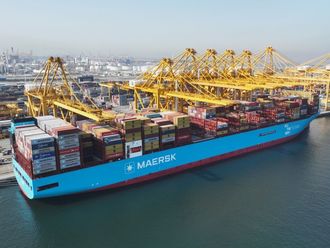Duesseldorf: Europe's largest steel producer, Germany, will likely produce less crude steel this year than expected as the Eurozone debt crisis creeps its way into the real economy.
"In the past few weeks business in the steel industry has become bleak, mainly due to the Eurozone debt crisis," German Steel Federation President Hans Juergen Kerkhoff said yesterday.
"Crude steel production in 2011 will tentatively be below the forecast level of 45.5 million tonnes but will exceed the previous year's volume of 43.8 million tonnes," he said.
He reaffirmed that he expects demand for rolled steel products for next year to grow by 1.5 per cent but said he was unable to provide an outlook for crude steel output.
The chief executive of Salzgitter, Germany's second-largest steelmaker, said last week that demand from car makers and other end-users was intact despite signs of a slowdown in the economy.
ThyssenKrupp, Germany's biggest steelmaker, and Salzgitter said in September they started slashing their output in the third quarter.
Outlook negative
ArcelorMittal, the world's largest steelmaker, said last week a summer dip in demand is deepening into a second-half slump and customers were increasingly cautious due to economic uncertainties.
Ratings agency Moody's last week cut its outlook for the European steel industry to ‘negative' and said it expects demand to weaken by up to four per cent in the next 12 months as the industry faces economic strain and weak construction and auto markets.
Kerkhoff said contrary to the normal business cycle, new orders of German steelmakers have not recovered from the usual summer lull and were down six per cent year-on-year in September. In the third quarter, new orders were ‘around' the same level as the same period last year at 8.76 million tonnes, he said. The order backlog has been declining since mid-year, and while it was up eight per cent year-on-year in the third quarter, it shrunk six per cent from the second quarter, he added.
"The steel industry... is experiencing the consequences of uncertainty in the markets, which has arisen due to the continuing worsening of the debt crisis," Kerkhoff said.
Kerkoff said buyers of steel products were in wait-and-see mode and were avoiding stocking up too much in case the economy plunges into a recession. But he noted new orders in the machine engineering sector and production in the automotive industry showed the steel processing industry remained in robust condition.












